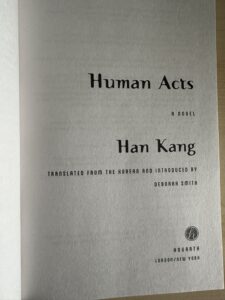
Paradis, a novel by Nobel laureate in literature in 2021, is a wonderful journey to different lands and areas in Africa, seen through the eyes of a 12 years old Swahili, Yusuf. Through him we encounter a wide rage of events and characters, with different backgrounds and nationalities, ranged from traders, thieves, criminals, tribe leaders, slave merchants, women portrayed in different colours and identities, colonial powers: Germans and French….etc.Through 284 pages, we come to know another Africa: more authentic and subtle than the traditional known literature about the continent. Without a decent and honest writes as Abdulrazak, we are lift with a rude frame of powerful people who could dictate to us their short sighted and narrowed view of life.
I am just reading “War”, of Bob Woodward, 2024. What a vast gap between depicting characters as Yusuf, Khalil, Aziz, Abdallah, Maimuna, Hamid, the Lady, Amina….& the characters we meet on the top of the echelon in World´s Politics: Biden, Trump, Zelinski, Putin, Blinken….. World of upside down view between two approaches to depict the world we are living in . Depending which angle you are looking from, another world could be seen, although we are all living on a small planet on the verge of destruction & annihilation. Only literature gives us a glimpse of hope to look forward.
